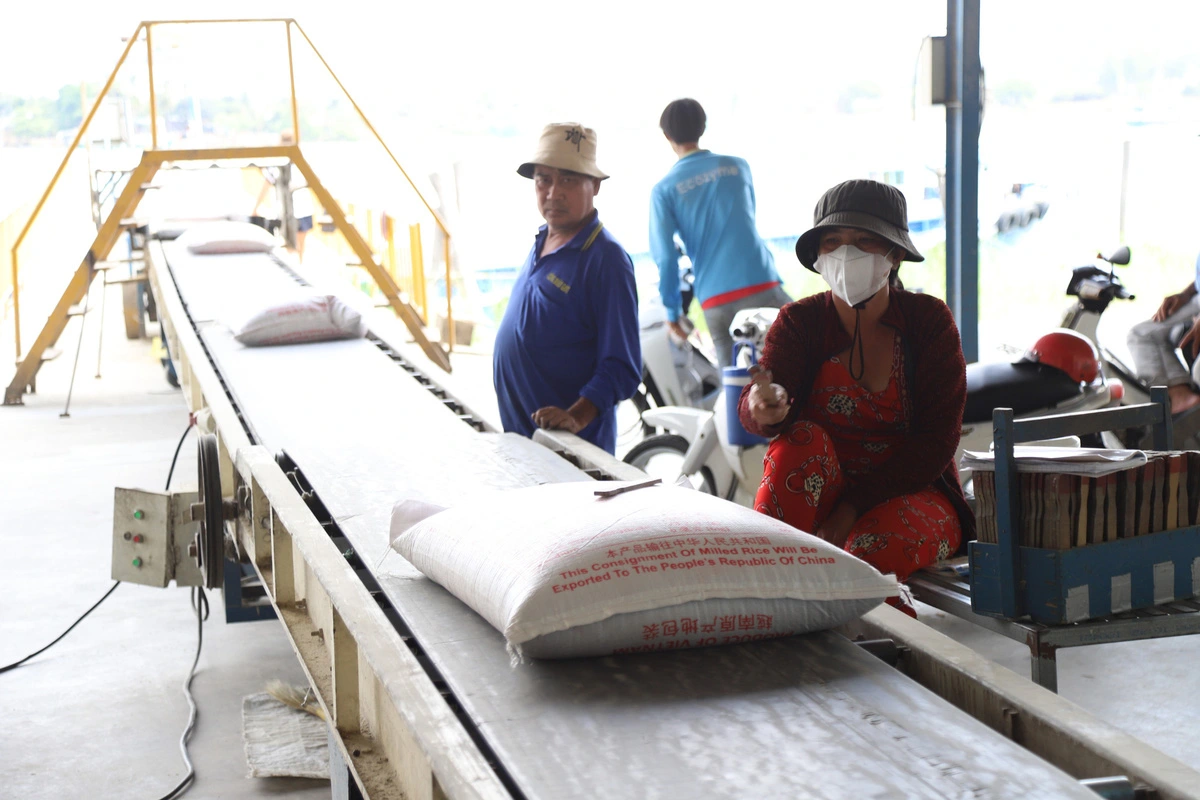Vietnam's rice exports to China in January-September this year dropped 72 percent compared to the same period in 2023, reaching only 241,000 metric tons, down from previous levels of over one million metric tons per month, according to the Ministry of Agriculture and Rural Development.
The situation is similar to that in 2019 when Vietnam’s rice exports to the northern neighbor tumbled 20 percent in the first half of the year.
Chinese people have the habit of eating rice every day, so their demand for rice is huge.
However, China’s rice imports from Vietnam dropped.
A leader of the Vietnam Food Association told Tuoi Tre (Youth) newspaper that this year’s rice exports peaked in March and April with more than one million metric tons per month.
Other months witnessed a monthly export volume of 700,000 - 800,000 metric tons.
However, rice exports to China fell sharply.
Among the seven million metric tons of rice exports in January-September, 70 percent or over five million metric tons of rice was sent to other ASEAN countries, according to the Ministry of Agriculture and Rural Development.
The ministry also reported that China’s rice import quotas have remained unchanged since 2023, at 5.32 million metric tons per year.
Vietnam’s rice exports to China hit a record in 2017, amounting to $1 billion. The figure dropped to $240 million in 2019.
Nguyen Chanh, the owner of a rice milling and exporting company in the Mekong River, said China is no longer a large buyer of Vietnam’s rice, adding that the neighbor is also a leading rice producer in the world.
It imports Vietnam’s 504 rice for industrial production and other high-quality rice products to meet high-end customers’ demand and export to third markets, mainly in the South Pacific, Chanh added.
To retain loyal customers, Vietnamese rice enterprises should get updates on the market information and build rice brands, according to a rice exporter in Ho Chi Minh City.
At present, only over 10 percent of the 200 designated enterprises are allowed to export rice to China, according to the Vietnam Food Association.
Vietnamese firms are also facing fierce competition from rivals in China and Thailand.
Many insiders had earlier forecast that rice exports to China would increase as its rice farming area and output fell while its rice demand increased.
The forecast was made after China passed its new national food security law, which took effect on June 1, 2024. The law was expected to enhance its food security amid the market volatility.
However, the reality is completely opposite to what was forecast.
Like us on Facebook or follow us on Twitter to get the latest news about Vietnam!


















































